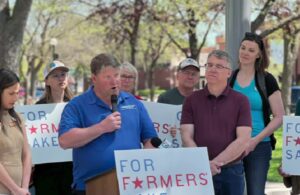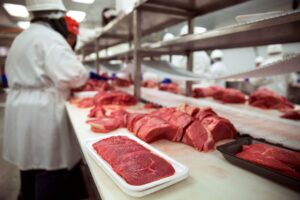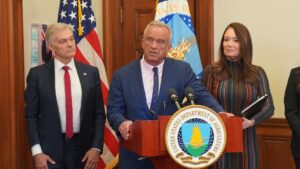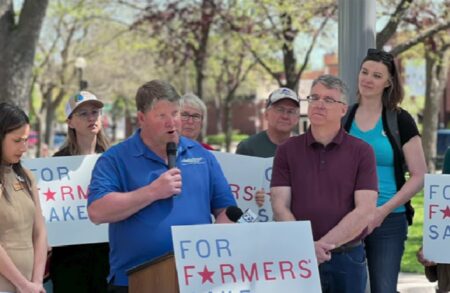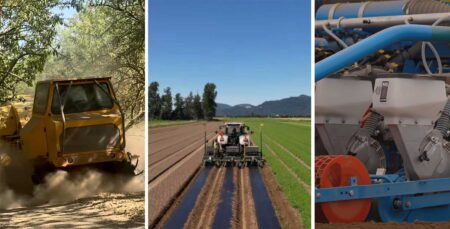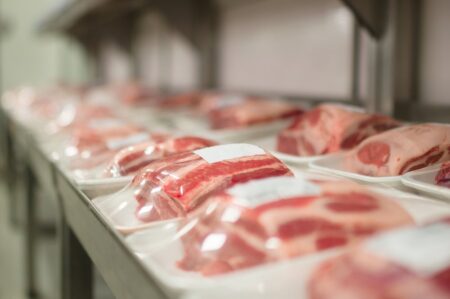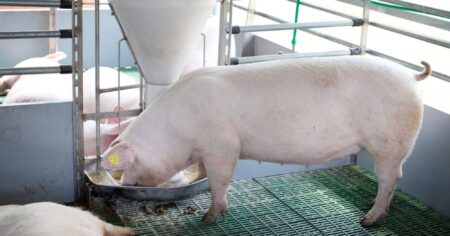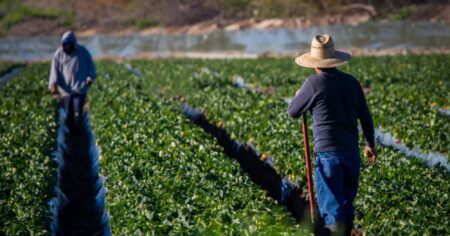By Jacob Orledge
North Dakota’s agriculture commissioner warned lawmakers this week that federal trade and health policies are exacerbating concerns of farmers already worried about low ag commodity prices and high production costs.
In order to keep up, the average farm in North Dakota is borrowing 12 to 20 times more than the average farm did in the 1980s, Agriculture Commissioner Doug Goehring said.
“We’ll have to ride through this and see what happens,” Goehring told members of a legislative committee on Wednesday.
That borrowing could be a ticking time bomb, according to Rep. Mike Brandenburg, a Republican from Edgeley who also is a farmer. The lawmaker said farmers are “going to work really hard, take the crop out, and lose some money again” this year. Then this winter “bankers are going to put the squeeze on” any farmers who owe money and don’t have equity, he said.
“That’s when things are going to fall apart,” Brandenburg said.
Brandenburg expects farmers will have to make “hard decisions” this winter if they don’t have equity. Even if they don’t lose the farm, they may be forced to sell off some land or rent it out to make up for a shortfall with what they’ve borrowed from the bank, he said.
Trade Impacts
Most of the world is producing a record amount of ag commodities like soybeans and corn. But the agriculture commissioner said there’s still a deficit in some parts of the world.
“We still have quite a deficit for commodities and food in the Eastern Hemisphere, which means that we’ll continue to try and do as much business as we can given policies and trade issues,” Goehring said.
The biggest barrier to that is the federal government’s trade policy and tariffs. A trade deal with China, traditionally a major customer for North Dakota’s soybean production, is being held up for non-trade reasons according to Goehring.
“It’s more political than anything else,” he said.
Goehring told lawmakers that farmers’ breakeven prices for soybeans are usually around $10.32, corn is around $3.80 and wheat can break even at $6. But those commodities are only fetching $8.65 for soybeans, $1.60 for corn, and $4.70 for wheat. And the prices for soybeans can be deceptive.
“In some cases, elevators have said they won’t take anything because they don’t have a home for it,” Goehring said of soybeans.
One contributor to the low prices are the tariffs President Donald Trump has implemented against countries across the world, including several customers for North Dakota’s ag products.
“The ag community is trying to be patient and they’re looking at this and saying ‘yes, we need fair trade deals,’” Goehring said. “But at some point, rubber meets the road and they owe their creditors and they owe the bank.”
U.S. Rep. Julie Fedorchak, R-N.D., on Wednesday met with a group of North Dakota farmers and ag industry professionals.
She said in an interview there are negotiations taking place in Congress to provide some short-term help for farmers, perhaps through tariff revenue, to get them through the winter financially.
Goehring isn’t sure financial relief from the federal government will be enough.
“I don’t know if you can write a big enough check through the federal government to cover losses,” he said.
In addition to a lack of exports, Fedorchak and Goehring said farmers also are concerned about the cost of inputs like fertilizer. China is a major supplier of fertilizer.
MAHA’s ‘Attack’ on North Dakota Ag
A growing issue for North Dakota’s agriculture industry, Goehring said, is the “Make America Healthy Again” (MAHA) movement championed by national figures like Secretary of Health and Human Services Robert F. Kennedy Jr.
“They’ve now turned their attention to attack seed oils,” Goehring said.
North Dakota is a leading producer of sunflowers and canola, which are used to make some of the oils the MAHA movement opposes.
Goehring said Kennedy and others at the forefront of the MAHA movement have been pushing the use of animal fats like butter instead and have made disparaging comments about food and agriculture.
“You can’t trust them anymore,” Goehring said. “Above everything else, we live in the United States of America. We have embraced choices in agriculture and food, in our lifestyles, for decades. For centuries. Now all of a sudden, we have people who want to dictate and pull that freedom away.”
North Dakota Monitor Deputy Editor Jeff Beach contributed to this report.
North Dakota Monitor reporter Jacob Orledge can be reached at [email protected].
North Dakota Monitor is an affiliate of States Newsroom, the nation’s largest state-focused nonprofit news organization, supported by grants and donations. The Monitor’s editorial decisions are made locally by our team of North Dakota journalists. The Monitor retains full editorial independence.


